Environmentalism Chapter 9 - Animal parts trade - Probing the problem part II
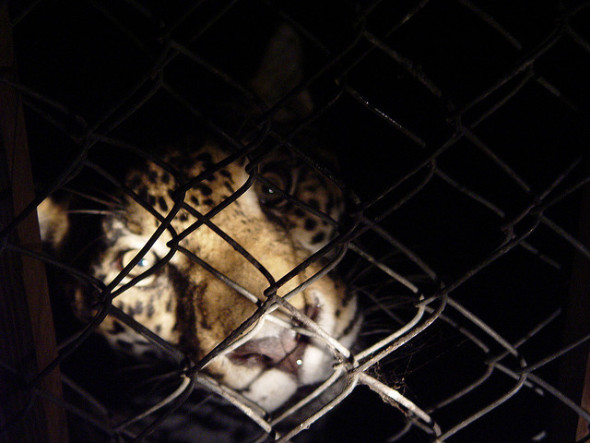
At the start of the month January we had the pleasure of screening a young wildlife photographers work by Pooja Gupta regarding the trade in Parrots and whether it is an ethical choice or not on purchasing them to just place within solitary confinements of a cage.
The pet trade is mirroring that of the illegal tropical pet trade of which many animals from around the world are stolen from their natural habitat then bred time again that provides an array of animals both for the “legal pet trade in tropical domestic tropical animals” to the illegal trade of which 90% of all funds now go to illegal arms sales and deals to fund terrorists.
These terrorists are mainly groups such as Al-Qaida, Abu Nidal Organization, Army of Islam, to the communist party of India and China, and internet terrorists such as Anonymous that claim to be “animal lovers” when in reality their battle is nothing more than fighting politics alongside all other domestic and non-domestic terror cells that cause havoc and disruption on an international scale without understanding the basic fundamental views of what they are fighting for, to even battling in the wrong perspective causing more harm than good.
One cannot preserve life by fighting on the computer, nor can one cannot save an animal online hence why we stand by our word and will not nor ever “support terrorists” that lack support of millions hence why they attack in certain ways and “areas” to gain support of weak minds” that fight with “emotions and love instead of education and hands on experience.
One of the main mission statements of the International Animal Rescue Foundation © is to create awareness of the key animal and environmental international issues that are effecting our way of living and Mother Nature that surrounds us. The illegal pet trade and animal parts trade is one of them and it’s now time to attack this head on and pin point the main spots that we now must focus on before the situation grows more out of hand.
As I stated yesterday 23 January 2013 the illegal animal parts trade and pet trade is now the number one easy money maker plus is now finically supporting terrorism in many nations online and on the ground. How bad though is the problem? I have outlined this below in brief;
- The global illegal trade in live species and animal parts — used for luxury accessories, Asian medicine or folk remedies like aphrodisiacs — is estimated to be worth up to $20 billion a year, Interpol quoted in 2011 this has now risen to a eye watering 34.6 billion a year “just for illegal pet trade”.
- Dealers will specialise in mainly big profit animals such as arachnids, reptilians, big cats, to birds and fish making on average for each species a whopping $30,000 to $90,000 (each) the more the sell of one species the quicker that species becomes critically endangered.
- It’s now a well-known fact that law enforcement and customs are poorly trained on recognising endangered species to taking action with the offenders getting of scot free or with just a slap on the wrist.
- Links between the animal tropical pet trade and narcotic smuggling are now identical with animal trafficking now seen as best opportunity to make money easily and quick without the authorities being alerted as narcotic smuggling would be.
- According to a series of U.N. studies on the illicit traffic of wildlife, wildlife experts claim that Chinese, Japanese, Italian, and Russian organized crime syndicates are “heavily involved in illegal wildlife trade.” While such claims do not suggest that organized crime syndicates are involved in all forms of wildlife trafficking, the United Nations reports that syndicates are “strongly present” in some sectors. Further, even when criminal syndicates are not controlling the trade, much of the trafficking is commonly described as “highly organized…” Anecdotal accounts also indicate that some organized groups are involved in both illegal wildlife and human trafficking.
- Although evidence has been reported as “slim” to link the pet trade to terrorism the evidence that’s been located so far by Interpol states that Asia and Africa are the two number one key groups that are profiteering, trafficking and involved in illegal arms deals to terrorism of which “animals are the number one sufferer”.
Two incidents from the last few years show;
In a major 2007 sting operation by the U.S. Fish and Wildlife Service, the largest of its kind, undercover agents spent three years infiltrating a ring smuggling endangered sea turtle skins from the shores of southern Mexico to as far north as Chicago. Illegal drugs turned up on both sides of the border over the course of the investigation, U.S. Fish and Wildlife agent quoted.
In the same investigations another incident showed;
In the United States, marijuana was seized at one of the raided warehouses filled with animal skin boots. On the Mexican side, smugglers offered to ship cocaine along with the hides of turtles whose numbers are rapidly dwindling in the wild. “It was just thrown out there like ‘Hey, we can also move this stuff if you want.’… They are pretty much moving anything from pets to animal parts.
The pet trade and illegal animal parts trade we all know is big but does it ever enter into the “professional business’s” and then people’s homes? I mean you would expect that professional pet stores that are selling freely handing out advice to advertising on television would know the difference between an “endangered species” and a pet yes?

“Since the World Trade Center Attacks the illegal animal parts trade and exotic pet trade has driven terrorism vastly funding organised crime from narcotics to the military arms deals in Asia and Africa”..
Location Beirut;
Grey parrots and vervet monkeys mingle with cats, dogs and hamsters in many of Lebanon’s pet shops, but if you want the really exciting animals, you have to ask behind the counter.
Lions, panthers and bears—in fact many of the mascots from the American sports franchises—are just a few of the animals you can buy here. One pet store in Beirut—whose owner requested anonymity for fear of protests from animal rights groups—offers a chance at owning your own piece of the wild. The owner received a degree in veterinarian studies in Russia and, unlike many pet stores here, the six dogs strategically placed in the window are clean, healthy and vaccinated.
But these aren’t the only animals he sells. He can get you lion and bear cubs, leopards, even a baby crocodile. Sitting behind a tidy desk surrounded by bags of pet food, he describes the process of how a wild animal is ordered and smuggled into Lebanon.
It starts with a deposit (lions, for example, require a down payment of $1,000-$1,500). The pet store owner then puts in an order to a Lebanese middleman who contacts a farm in neighboring Syria, where lions are raised for sale. The animals are placed in boxes and loaded into taxis that head for the Lebanese-Syrian border. At the border the taxi driver will often bribe a guard around $10, usually saying there are dogs in the crates.
According to Jason Mier of Animals Lebanon, chimpanzees in central Africa can go for as little as $20. This means buying and reselling the animals abroad can bring in a huge profit. (Photo courtesy of Animals Lebanon)
The pet store owner offers a video on his iPhone as proof of the process. In it a lion cub is jammed into a metal kennel most likely meant for domesticated dogs or cats. A man whose face is out of the frame kicks the cage.
“[The animals] have a better life here [in Lebanon] than on the farms in Syria,” says the pet store owner, adding that carnivores like lions and leopards are often underfed because farm owners can’t afford to feed them meat. But despite his concern for the animals, his motives are economic. He says orders are sporadic and so exact figures are hard to pin down, but one lion cub tends to go for $3,000-$5,000. In the right market, with the right client, the cost can go as high as $10,000.
Current Lebanese animal welfare legislation consists of just three sentences and calls for a maximum penalty of less than $15. In addition, it is rarely enforced—Animals Lebanon states “extensive research has not shown this law used even once in the past twenty years.”
And though Lebanese parliament voted in July to become the 176th member of the Convention on International Trade in Endangered Species, few here seem convinced that the trade of exotic animals will stop. Because the trafficking of exotic pets is illegal in Lebanon, it’s hard to know exactly how many wild animals are smuggled into the country every year. The pet store owner estimates there are around 40 locations in the country that keep exotic pets on private or public display—from zoos to pet stores and even family homes.
“The phenomenon of keeping large ‘dangerous’ animals as pets appears to be gaining popularity in the Middle East,” writes Richard Thomas, communications coordinator for the wildlife trade monitoring organization TRAFFIC International, by email. “We receive regular report[s] of … Cheetah, Lions, Tigers, etc. in that region.” A lion is rescued by Animals Lebanon from an Egyptian circus. (Photo courtesy Animals Lebanon)
Lebanon and Syria are not the only countries implicated in this trend. Jason Mier, executive director of Animals Lebanon, says that in addition to “at least four zoos in Damascus,” Central and West Africa are hotbeds for wild animal smuggling.
Mier, who worked on animal welfare issues in a number of African countries before coming to Lebanon, says poverty drives the exotic animal trade in many countries. He says he saw vendors in the Congo selling baby chimpanzees for $20, an amount that represents a “huge profit when people on average earn 23 cents a day.”
According to Mier, other countries that supply Lebanon include South Africa, Ukraine and Bulgaria (where Mier says you can rent a lion cub for a day). According to the pet store owner, crocodiles are often smuggled through the airport from Malaysia labeled as “fish.”
So who is buying and raising these animals? Especially at time when the Lebanese middle class is struggling with electricity and water shortages? “The keeping of exotic animals as pets is centuries old,” explains Thomas. “Cleopatra is believed to have owned a pet leopard named Arrow and possibly even a pet tiger too.” But history aside, Thomas says prestige among Lebanon’s upper crust is the real reason people want to have exotic pets.
“The impression I have is that it has become something of a fashion/status symbol to own a dangerous pet,” he writes, “which is why it’s growing in popularity.” According to the pet store owner, the secluded villas of the Lebanese elite outside Beirut are the destination for many of these animals. They are kept in cages or allowed to roam in fenced gardens.
Souraya Mouawad grew up in such a villa, one that was briefly home to a doomed leopard named Moulou in the 1970s. Speaking on the phone, Mouawad, who was born and lived in Africa as a child but moved to Lebanon as a teenager, fondly remembers the adored childhood pet.
http://animal.discovery.com/tv-shows/fatal-attractions/lists/facts-exotic-pet-trade.htm
“My father bought a big house in Tripoli with lots of space and he went back to Africa. We settled there—my sister, my mother and my aunt. When my father came back he brought us a 3-month-old leopard.
Foxes are one of the few wild animals native to Lebanon that are kept as exotic pets. (Photo by Carine Mechref) “We named him Moulou. When we first got him … we stayed at the Carlton, a five-star hotel. The valet parking man who was wearing white gloves brought steak for Moulou to eat. Moulou slept in the Carlton hotel garden that night and when we woke up he had broken all the small plants and trees.”
As infants, wild animals are often cute and manageable. But Mounir Abi-Said, founder of a wildlife preservation in Aley (a town northwest of the capitol), says wild animals are often locked in small cages and left in poor conditions once they become older, more dangerous and more expensive to care for. “Moulou was an adult at one year,” says Mouawad of the leopard’s transition from a cuddly playmate to a wild animal. “He ate 10 pounds of fresh meat a day and drank 5 liters of milk.”
Despite the family buying a large parking area so Moulou could get his necessary exercise, Moulou suffered from back paralysis and couldn’t run. “We didn’t know he should be in Africa and not with us,” says Mouawad, who is now founder of Animals Pride and Freedom (APAF), an animal rescue organization.
As danger from Lebanon’s civil war rose in early 1975, Mouawad and her family decided to return to Africa, but Moulou couldn’t travel in his condition. After numerous attempts at finding a new home for the leopard, Mouawad’s father had the animal secretly euthanized just as the family left for the airport.
When Mouawad learned the truth years later, it caused a deep rift between her and her father. “I didn’t eat at the same table with my father for four years and I didn’t talk to him for four years,” she says. The vervet monkey is commonly found in Lebanese pet stores. (Photo courtesy of Carine Mechref)
Exotic pets often meet tragic ends. Owners are faced with the reality of a full-grown wild animal in their house and among their family. For some, like Mouawad, there is an emotional attachment; in other cases the animal is simply an accessory that has grown inconvenient.
Mier remembers one recent case when a chimpanzee was left on the side of the road next to a private villa. Despite the poor conditions, Mier was unable to do much legally and it took months to convince the owner to hand over the chimp to Animals Lebanon so they could relocate it to a sanctuary.
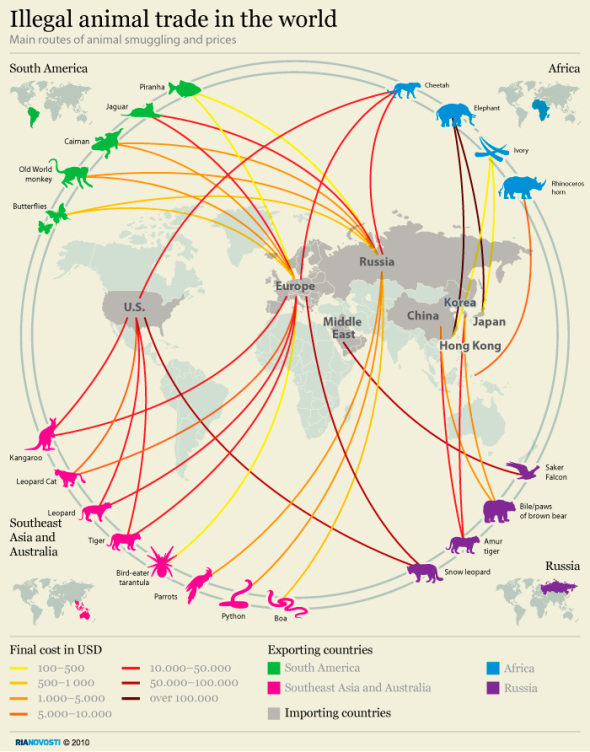
Lebanon’s lack of laws—and the government’s inability to enforce them—pose challenges to animal rights supporters. While it doesn’t replace national laws, Mier maintains that CITES’s framework will help Lebanon develop proper laws as well as educate officials to take appropriate actions toward the wild animal trade.
“[In other countries, CITES] slowed smuggling and saved some animals from going extinct,” said Mier.
Mier contends that it will take more to slow the “multibillion-dollar industry” that is the exotic animal trade here.
Location Japan; 2012
Animal charities have condemned NOAH: The Inner City Zoo for selling penguins, meerkats, alligators and monkeys. The creatures are caged in one squashed room — on the second floor of an office building.
Set up in 1999, NOAH (Nature Orientated Animal House) also sells otters, megabats, sloths, foxes and a crane — alongside several other exotic animals. Some of the animals cost thousands of pounds to buy and customers even have to pay a £4 entry fee to look around the shop.
One onlooker said: “Most animals were quiet, as if they’d come to terms with their enforced captivity. Many are in tiny cages, and the owls are tightly fixed down so they can’t fly.
Josey Sharrad from the International Fund for Animal Welfare, said: “IFAW absolutely condemn the treatment of these animals. “These conditions cause severe stress for the animals which can weaken immune systems and leas to risk of disease. “When these creatures are available for purchase, it confuses people as to whether an animal is really at risk of extinction or not.”
According to their website, NOAH has just recently taken stock of marmosets, fennecs and squirrels — all as babies. Prices are often on request, and a prairie dog — a type of rodent — was priced at £1,500. Alan Knight, Chief Executive of International Animal Rescue said: “We would urge people to stay away from this pet shop and others like it. “Exotic animals should live in the wild as nature intended, not in captivity as a source of entertainment and prestige, and to line the pockets of greedy pet shop owners.
“Breeding and selling wild animals as exotic pets is cruel and irresponsible. “Undoubtedly many of them are eventually abandoned when they become ill or grow too large and too strong for their owners to manage.” Owner, Kenji Takahashi, 59, insists that he obeys all the rules of Japan.
He said: “I may not agree with all the laws of Japan, but I must obey them. “My premises may not be perfect and the space we have for each animal is not as big as we would sometimes like. “But the same could be said for any zoo across the world. “What I am trying to do is increase the love that humans have for exotic animals.”
In the United Kingdom one of the last continents that one would least expect to find or even know of anyone selling or profiteering from the exotic pet trade of which you would think that this is simply a taboo and that the United Kingdom is known for its love of animals and nature wouldn’t be involved in such crimes.
Regrettably that there are many illegally exotic pets entering England and leaving the England every day that customs are still “not trained” in identifying to going through every single item in the crates.
In the UK, wild animals deemed ‘hazardous’ are licensed under the Dangerous Wild Animals Act of 1976. However, this legislation was created mainly to protect the public rather than ensure high standards of animal welfare.
In the UK there are known to be at least 154 big cats held in private hands (including 12 lions and 14 tigers), almost 500 assorted monkeys, over 250 venomous snakes and 50 members of the crocodile family. (Big cats in Britain, 2006)
Between 1994-2004, the European Union was one of the largest importers of wild-caught birds, importing a massive 9.5 million birds of species listed in the Appendices of the Convention on International Trade in Endangered Species of Wild Fauna and Flora (CITES) – equivalent 87% of world trade. However, as a result of the avian influenza outbreak and campaigning by the RSPB¹, APA² and others, July 2007 brought permanent ban on the import of wild birds into Britain and the rest of the European Union.
Location; United Kingdom Leeds 2010
A couple who ran a pet shop turned their hand to illegal trading in the skins and bones of some of the most endangered species in the world.
Graham and Norah Pitchforth sold on eBay, among others, a stuffed lion cub and birds of prey, monkey skulls, flying fox skulls, butterflies, snake skulls and the skin and skull of a penguin.
Other species included baboons, macaques, otters, macaws, rhinoceros, kestrels and a porcupine. The Pitchforths ran a legitimate business, called Get The Bug, on the internet auction site, selling specimens of animals they had imported or acquired – but some transactions were outlawed. They each pleaded guilty earlier this year to multiple charges relating to the importing, exporting, selling and possession of endangered species after failing to get necessary documentation.
Leeds Crown Court heard that the couple sometimes labelled packages as other items, such as “table decorations”, to avoid suspicion, and on one occasion agreed with a seller to claim that a stuffed snowy owl was a gift when he had paid £150 for the item. The pair, from West Yorkshire, were yesterday sentenced to 44 weeks’ imprisonment, suspended for 18 months. They were also ordered to carry out 200 hours of unpaid work.
The court was told that the couple, of Wrenthorpe, Wakefield, had run a pet shop for 20 years and were “extremely well-thought-of” in the local community. Graham Pitchforth, 61, had an interest in collecting specimens and taxidermy and had a part-time job lecturing students at Wakefield College about endangered animals. The pair set up the eBay shop and sold 3,637 animal specimens – of which 22 were found to have been traded illegally between October 2005 and December 2006, making a profit of £2,329.16.
The court heard that the couple failed to get the relevant permits for the importation, exportation or sale of these 22 transactions, despite knowing they were needed. Sentencing, Judge Christopher Batty told them: “You fall to be sentenced for 22 transactions made in the full knowledge you were not entitled to make them. You did and knew you did not have the necessary authorisation so to do. Much of your business was legitimate, and as such it is clear that you had the relevant knowledge and expertise to deal legitimately in the trade of endangered species.”
Judge Batty said Norah Pitchforth, 65, received a police caution in July 2005 for offering a barn owl for sale without the appropriate permit. On other occasions, the couple were told that some skulls required certificates but continued without and a consignment of hornbill casks exported to the United States was seized for not having proper documentation. Some transactions were arranged by email, which the couple sometimes asked to be destroyed following the sale.
The couple held hands and Norah Pitchforth repeatedly wiped her eyes as Judge Batty told them he would suspend their sentences, despite the serious nature of the crimes.
He said: “I have thought long and hard today about what to do with you. This was a deliberate flouting of the regulations for commercial gain.” The pair admitted 12 counts of illegally exporting, three of illegally importing, seven of illegally selling and two of illegally possessing specimens under the Customs and Excise Management Act.
3,637 Animal specimens sold – 22 of which were found to have been traded illegally.
No continent is immune from the illegal wildlife trade or the exotic pet trade and although this et store was not you “average Joe Blogs” it still accounts for a pet store that kept no records of which somewhere in the United Kingdom people have in their possession “critically endangered species” and this is why International Animal Rescue Foundation © never fuels, or supports such activities that are wiping out our species every year.
The Convention on International Trade in Endangered Species of Wild Fauna and Flora (CITES) has brought together 175 nations to combat the illegal and unsustainable wildlife trade through a uniform regulatory regime and increased coordination on a global scale. The U.S. Fish & Wildlife Service’s (Service) Division of Management Authority and Division of Scientific Authority, as well as the Office of Law Enforcement, are primarily responsible for implementing and enforcing CITES in the United States.
Recently, CITES founded the International Consortium on Combatting Wildlife Crime (ICCWC), a collaborative effort between the CITES Secretariat, INTERPOL, the United Nations Office on Drugs and Crime (UNODC), the World Bank and the World Customs Organization (WCO). ICCWC was formed to increase prosecution and punishment for caught smugglers and poachers as well as increase law enforcement in developing nations. Visit the CITES website to learn more about ICCWC.
Yesterday we focused on two fundamental and known factors of which we are fully investigating, Climatological destruction we are 100% certain is fuelling the skyrocketing demand for more wildlife/pet products, because the normal TCM/TIM markets are running short of medicinal plants that the TCM/TIM markets are mostly made up of.
As quoted we have to look at all sides of the problem and not just focus on the poacher and “demand for fake medicine to the individual consumer purchasing for entertainment and consumption purposes” because this is NOT the key element that is funding the trade of illegal animal parts and the exotic animal trade of illegally imported animals.
The trade is also being funded by “ourselves without knowing” which we are investigating and and now producing an international survey as well as asking other a-like wildlife organisations for their help to now pinpoint even the smallest of problem areas, highlight them, and then deal with them. You can answer the survey anonymously below and please be truthful. We will not know whom has answered to what location in the world your based. The survey is a simple yes and no answer poll with multiple questions.
We will only accept one answer per question and one cannot re-answer the poll of which gives us accurate results. We thank you for your honesty and feed back and would be most kind if you would share this survey to your friends, family and Social Media friends.
The other main factors are;
- Pet trade (lack of awareness and education) Purchasing exotic pets that have been illegally imported which the customer purchases “unwittingly” not knowing the damage they are causing to vulnerable, endangered, and critically endangered species.
- Tourism (Tourists purchasing trinkets or souvenir’s from beach sellers, to flea markets, again the buyer unwittingly knowing they are funding the illegal wildlife trade/pet trade) from purchasing products.
- EBay and other Internet sales sites (International Animal Rescue Foundation © has two operation’s in progress so far, one running from 2011 and the other from 2012 Operation Trojan horse – OTH) is focusing on the illegal pet and animal parts trade in seven locations internationally and Operation Swift Cover OSC – is primarily focusing on international online, market and black market sellers to tourism and two other areas that are not named for security reasons.
We must look at the poacher as the harvester as that is all he or she is they are not the seller, producer, courier, or trafficker they simply harvest the goods via an order from the “top of the pyramid” above which in reality is the “least of our worries” and/or the live animals of which they then pass the item/animals on to the courier that then reach the producer/buyer of which the item/animal is then sold on to the “distributor” = a purchaser being the last “action” trade that makes the sale. The profits are then fed In to terrorism/narcotics and the vicious circle goes round again.
Opportunistic poacher/trafficker
The opportunist mostly derives from a poor family with very low income or an individual that needs financial support, and this we all need to tackle and nip in the bud as it is contributing to barbaric slaughter and the exotic pet trade. The Opportunist mainly derives from a poor background and is only seeking profits for their family or themselves of which the government have let them down. So “Community relations /education and AWARENESS” is needed vastly to help in this area.
Within first world nations opportunistic theft is similar to poaching/smuggling although it doesn’t include animals but rather stealing money from the government’s via benefit fraud, illegally working with no permits to basic shop lifting as the opportunist is looking for “a better life or way of living”. So in reality the the poacher/smuggler is no different to that to the modernized thief hence why community relations need to be built to tackle this area.
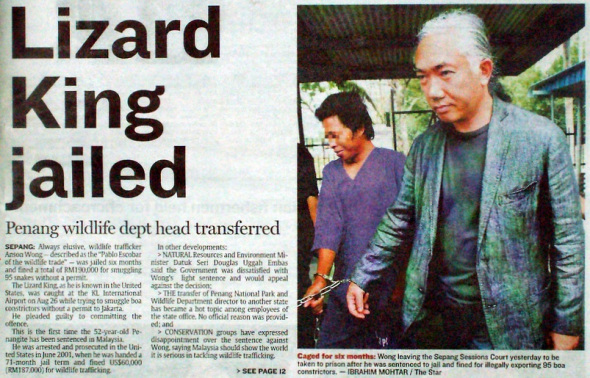
This area we must address and with Africa and Asia being the number two nations involved here within trafficking/poaching/ and exotic pet trade we must deal with this sensitively and with love and consideration too that will in turn cease the trade of the “opportunists” therefore killing part of the “the problem”.
E-bay and other international buy and sell online sites must be tackled too as there simply is not enough online trade and customs monitoring to cease the sales of inland and international sales of pet/animal parts sales.
January 23rd 2013 we located an Eastern Russian buy and sell site that had within it’s hunting listings Tiger and Leopard skin’s for sale with the opportunity of satisfying the customer with “exotic skins and endangered animal parts”. This has since been reported to law enforcement of which the surveillance team working within Operation Trojan Horse’s Unit have deployed more people to this particular area to probe.
You are breaking the law if you commit an act of poaching/purchasing/distributing/or dealing in endangered species to exotic pets.
Please don’t be a statistic or you could end up in prison.
Please click on the link below to stay up to date with news, view and media on animal and environmental affairs.
Dr J C Dimetri V.M.D, B.E.S, Ma, PhD , MEnvSc
info@international-animalrescue-foundation.org.uk
WARNING IF WE/LAW ENFORCEMENT SUSPECT THAT YOU ARE POACHING/TRAFFICKING/LAUNDERING/DISTRIBUTING/AND OR DEALING IN WILDLIFE PRODUCTS YOU WILL BE LOCATED AND PROSECUTED, ANTI POACHING TEAMS ARE NOW SHOOTING POACHERS ON SITE DON’T BE A STATISTIC ARE A FEW $$ REALLY WORTH YOUR LIFE?
Many people ask why we don’t support reserve’s and zoo’s to captivity - Please watch the video all the way through below.


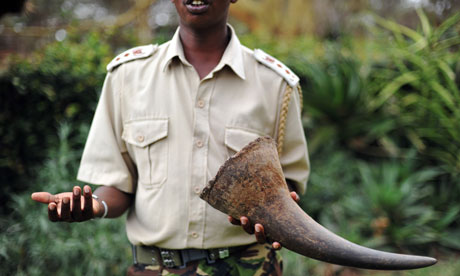
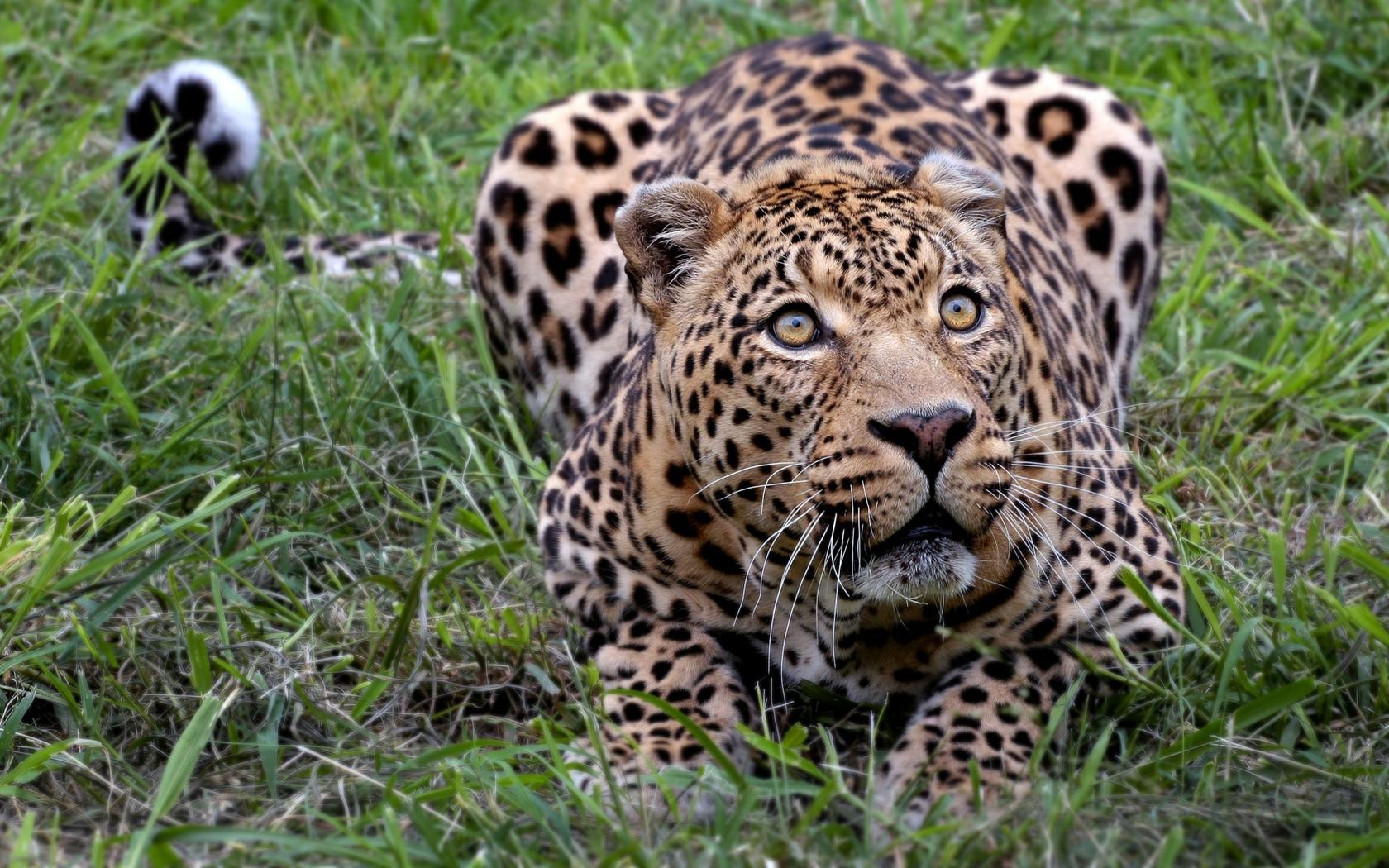
Thank you for your reply, should it merit a response we will respond in due course. This site is owned by International Animal Rescue Foundation and moderation is used.